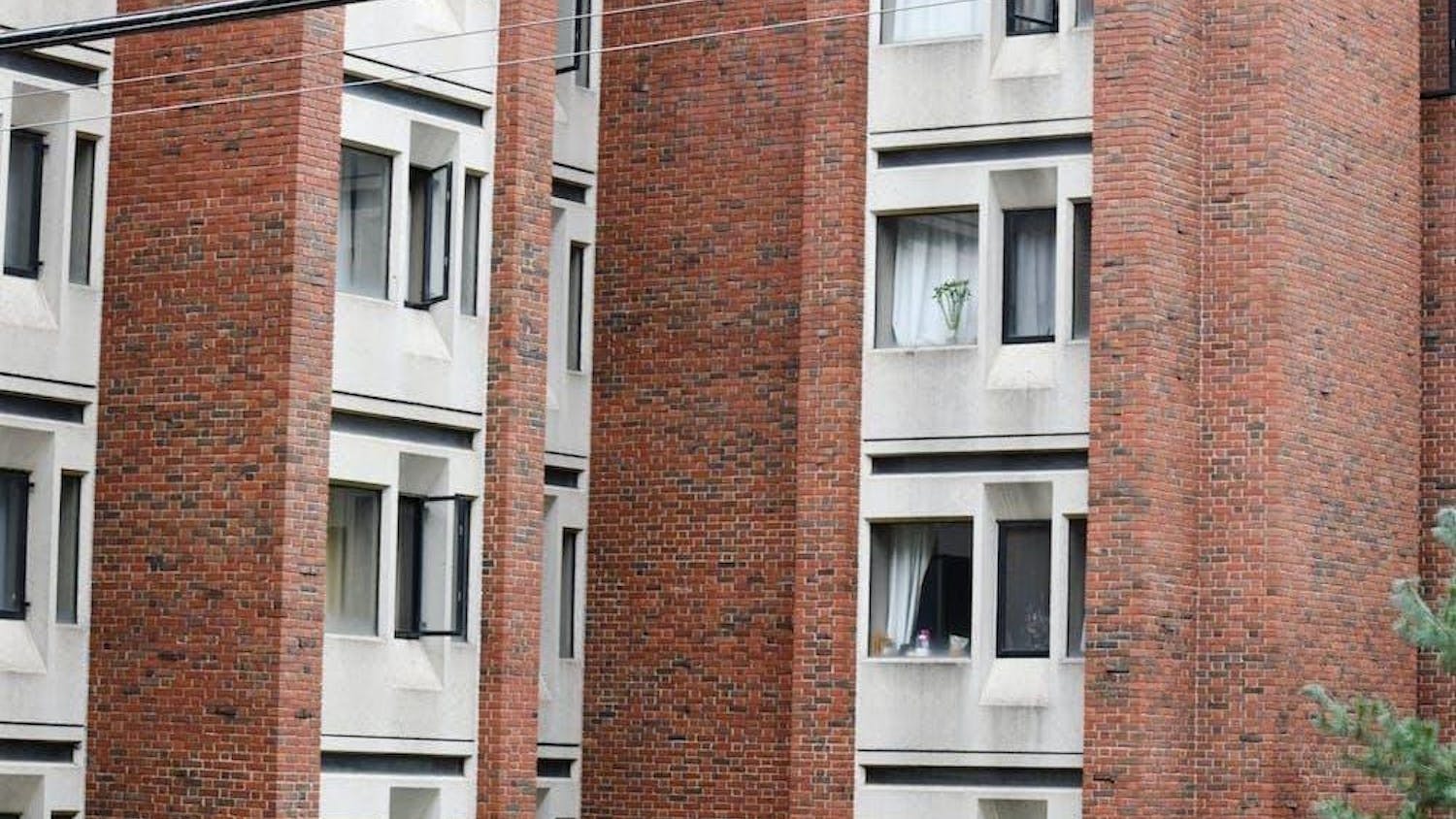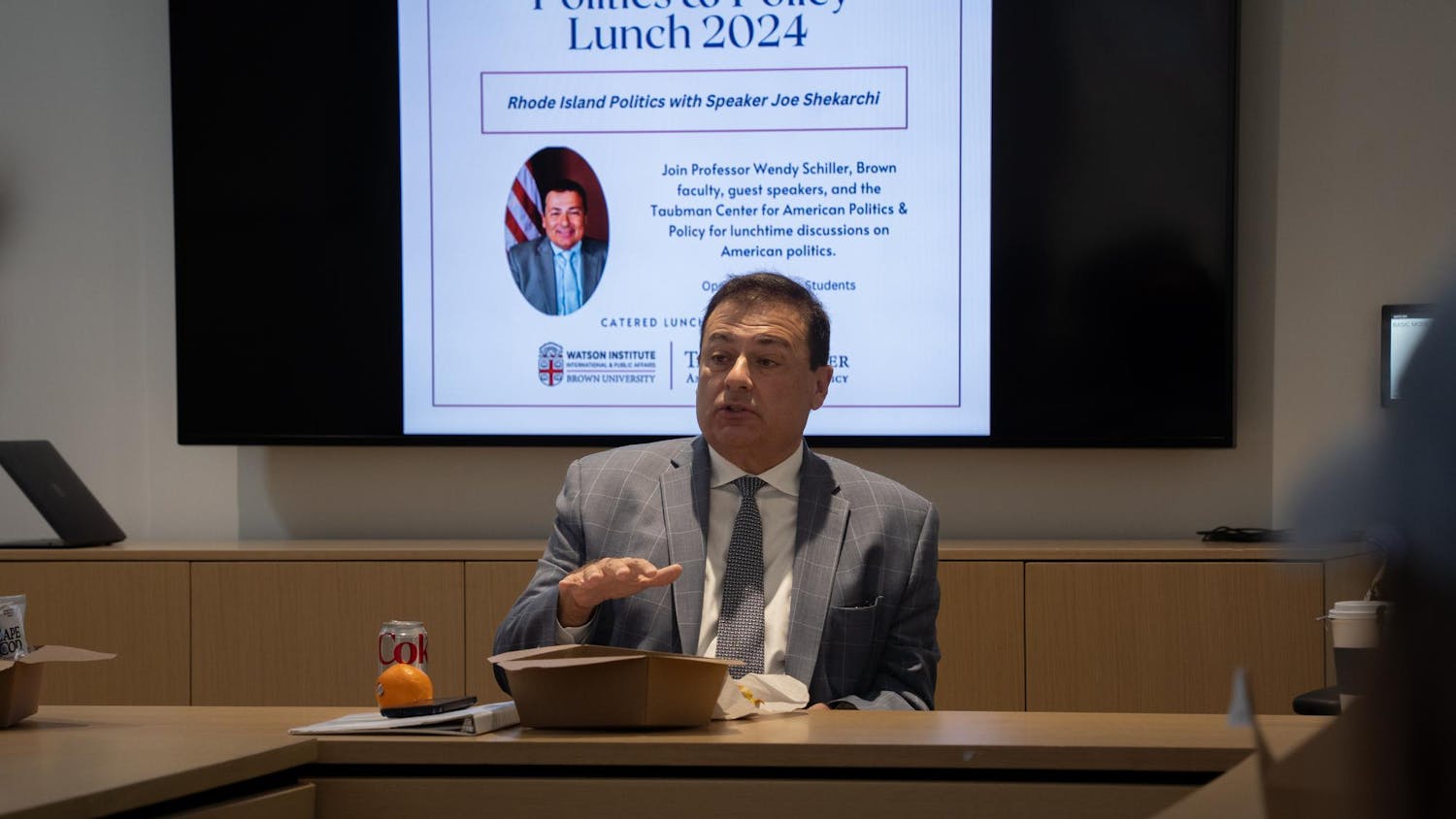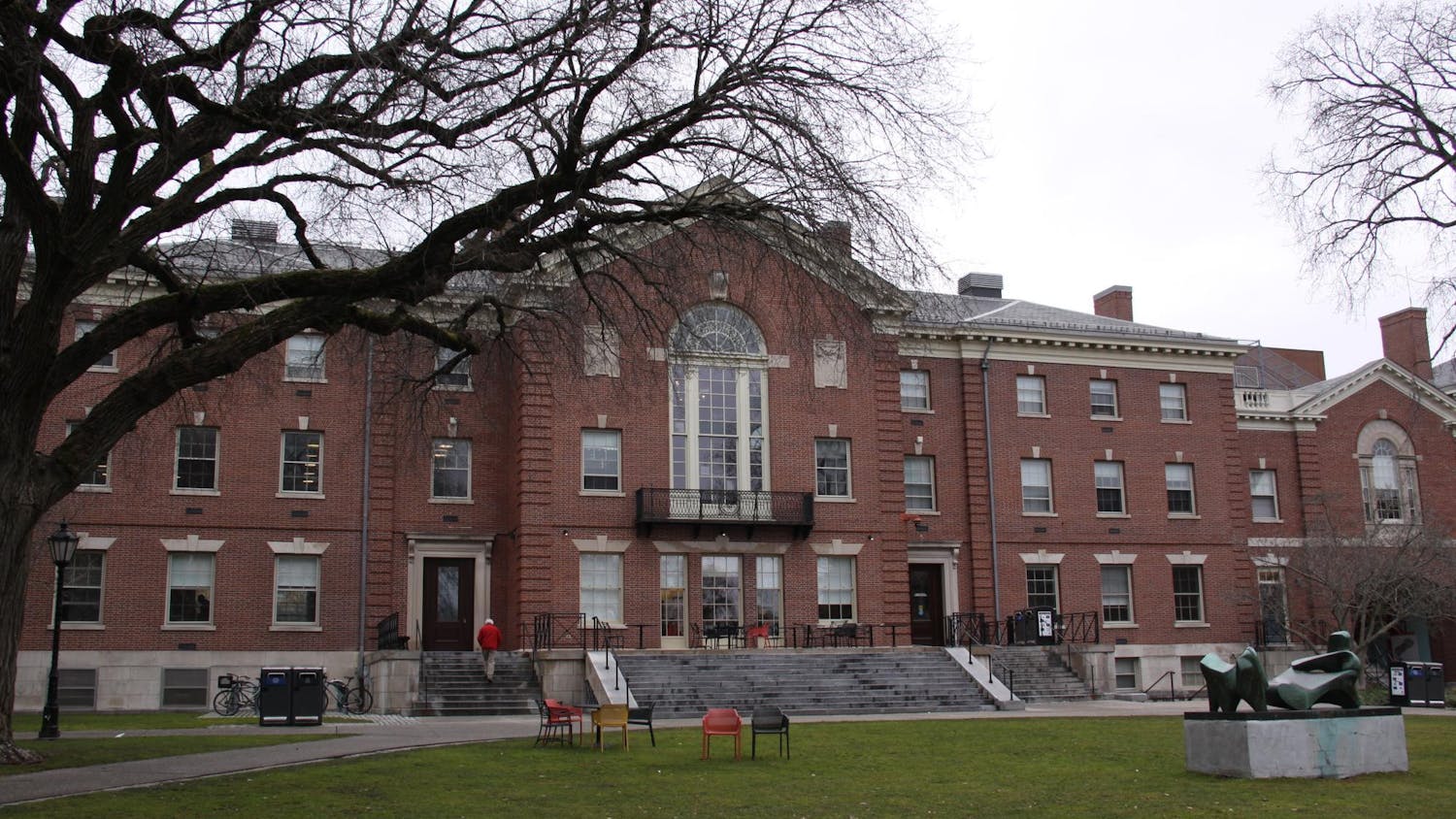A panel of four Brown and Providence experts on the Muslim community addressed the causes of negativity toward Islam in America, offering different opinions on how to combat increasing intolerance, in a mostly full MacMillan 115 Tuesday night.
The panelists cited media coverage, especially from cable news outlets, as a frequent perpetrator of stereotypes about the Muslim community.
The notion that "Islam is a totalizing way of life that accompanies everything a Muslim does" is an example of the media's biased interpretation of Islam, said Assistant Professor of Religious Studies Nancy Khalek.
She said the media capitalize on a common public assumption that Muslims are intolerant of religious and cultural differences. The media imply that if Muslims are permitted to follow Shariah law, she said, the public should be afraid that such laws would be imposed on the rest of the community.
"We must be aggressively undoing what the media is doing," said Sherine Hamdy, assistant professor of anthropology. "You have to work against it. You can't just be passive."
In a 2005 cartoon contest held by a Danish newspaper, artists depicted the prophet Muhammad in various derogatory illustrations, which incited a slew of angry and at times violent protests from the Muslim community.
"Westerners interpreted this as Muslim intolerance to freedom of speech," Khalek said.
She added that the reality of the situation was quite different. From the Muslim perspective, the protesters were not necessarily critical of the illustrators' rights to free speech, but they wanted to demonstrate that the drawings were highly offensive and injurious.
Khalek also critiqued the reaction of the media and the American public toward the recently proposed Islamic community center in the vicinity of Ground Zero.
"It seems to me that what we're really talking about is not whether religion belongs in the public sphere," she said. "What we're talking about is whose sensitivities ought to be respected."
Khalek disputed the common argument used against the community center — that a majority of Americans are not in favor of its construction, according to some polls. Referring to past instances of popular public opinion, such as the strong support of slavery by the American public before the Civil War, Khalek argued that such an argument has no historical or moral validity.
Brown Muslim Chaplain David Coolidge '01 argued that such prejudice against Islam is uncharacteristic of the American ideal as "the last best hope on Earth." Unlike countries such as France and Switzerland, where nationalist values contribute to a negative climate for Islam, American sensationalism of Muslims appears to be in contrast of its traditional platform of religious tolerance, which can be damaging to young Muslims when confronting Islamic identity, he said.
According to Coolidge, messages from the public and the media concerning symbols of Muslim identity, like the generalization that "scarves are bad," discourage people from wearing them who might otherwise. Coolidge said he is treated differently when wearing a cap or sporting a longer beard.
Khalek said a difficulty with getting the American public to accept Islam, as opposed to some ethnicities and cultures, relates to terrorist activity inspired by radical sects of the religion.
"People don't do things in the name of their ethnicity," she said, but Muslims who perpetrate acts of violence usually do so "in the name of Islam."
The technology-saturated culture in the U.S. also poses a problem in confronting myths and ignorance about Islam, she said. Citing popular conservative figures in shaping public opinion, Khalek said, "Sarah Palin can say something and 2 million people read it later on Facebook."
One way to fight generalizations about Islam may be to change the popular usage of the word.
"We cannot use the word ‘Islam' as an agent in a sentence," Khalek said. "What is Islam? Who is Islam? There is no pope. There are bound to be variations in a religion practiced by 1.5 billion people."
Local Imam Farid Ansari suggested another way to dispel misconceptions is by encouraging people to read the Quran.
"Learn for yourself," Ansari said to those who believe in myths about the Muslim community but take no steps to educate themselves about the religion. "If people are not informed, don't vote, don't take responsibility — that's going to affect the future in a very negative way."




